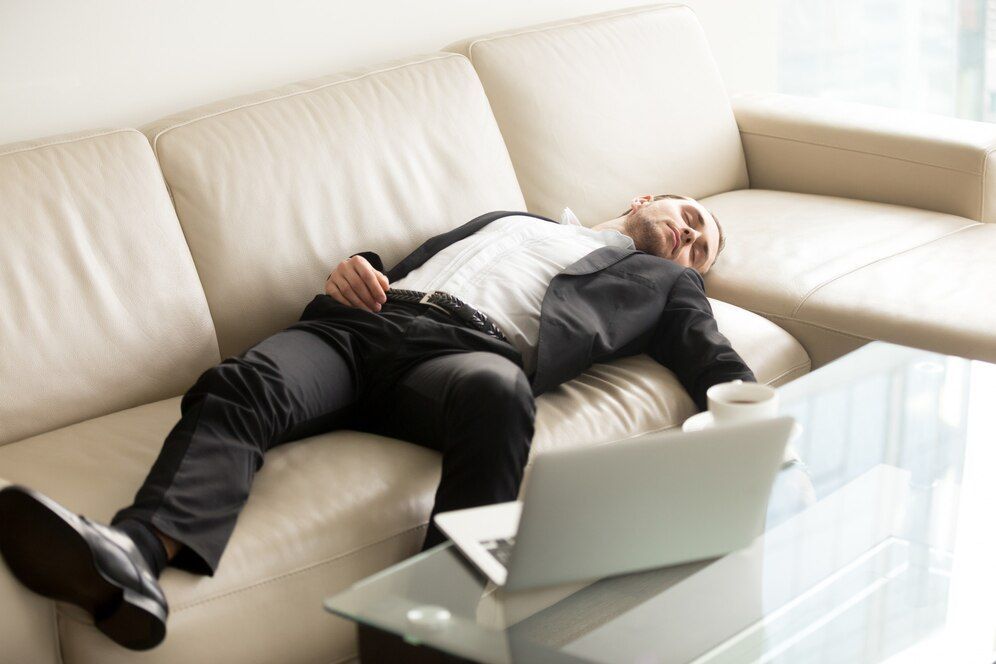Combating Fatigue and Enhancing Sleep with Oral Appliance Therapy for Sleep Apnea

Fatigue can significantly impact our daily lives, reducing productivity, lessening our ability to cope with stress, and ultimately diminishing our overall quality of life. Obstructive Sleep Apnea (OSA), a common sleep disorder in which the airway becomes partially or completely obstructed during sleep, is a frequent contributor to chronic fatigue. The repeated breathing disruptions that are characteristic of sleep apnea can lead to fragmented sleep, resulting in persistent tiredness and reduced daytime functioning.
One of the most effective and accessible treatments for Obstructive Sleep Apnea is Oral Appliance Therapy. Custom-made and fitted by dental sleep medicine professionals, these devices are designed to reposition the jaw and tongue during sleep, maintaining an open airway and facilitating natural, unobstructed breathing.
By addressing the underlying cause of breathing disruptions and enhancing sleep quality, Oral Appliance Therapy for sleep apnea has the potential to substantially reduce fatigue and contribute to an active, energetic lifestyle.
In this comprehensive blog post, we will explore the benefits of Oral Appliance Therapy for managing sleep apnea and alleviating fatigue, guiding you towards a life of revitalized, restorative sleep. We will delve into how oral appliances work, the types available, the advantages they offer over alternative treatments, and how dental sleep medicine professionals can help you find the ideal solution to improve your sleep quality and energy levels.
Understanding the Connection Between Sleep Apnea and Fatigue
The relationship between Obstructive Sleep Apnea (OSA) and fatigue is a direct and concerning one. OSA is characterized by repeated interruptions in breathing during sleep, caused by partial or complete airway blockage. These breathing disruptions lead to sudden awakenings and disrupted sleep patterns, making it difficult for the body to achieve the deep, restorative phases of sleep necessary for optimal daytime functioning.
As a result, individuals with untreated sleep apnea often experience symptoms of chronic fatigue, which can manifest in various ways, such as excessive sleepiness, irritability, memory issues, and difficulty concentrating. Without appropriate intervention, sleep apnea-associated fatigue can greatly hinder one's quality of life and contribute to an increased risk of accidents, reduced work productivity, and strained relationships.
The Role of Oral Appliance Therapy in Managing Sleep Apnea and Fatigue
Oral Appliance Therapy has emerged as an effective, non-invasive treatment option for those suffering from sleep apnea and the fatigue that comes along with it. This therapy involves utilizing custom-fitted oral devices, which work by repositioning the lower jaw and tongue during sleep, keeping the airway open and allowing for natural, unobstructed breathing. Here is a closer look at how Oral Appliance Therapy helps to combat sleep apnea and improve sleep quality:
1. Maintaining an Open Airway:
By adjusting the position of the jaw and tongue, oral appliances prevent the soft tissues in the throat from collapsing during sleep, thus eliminating the breathing disruptions associated with sleep apnea.
2. Reducing Snoring:
In addition to combatting sleep apnea, oral appliances also often provide the added benefit of reducing snoring, which can further promote healthier, more peaceful sleep for both the wearer and their sleeping partner.
3. Enhancing Sleep Quality:
With the airway maintained in an open position, the breathing disruptions caused by sleep apnea are kept at bay, allowing for more uninterrupted, high-quality sleep. This directly translates into better daytime functioning, reduced fatigue, and an overall improved sense of well-being.
Types of Oral Appliances and Finding the Right Fit
There are various types of oral appliances available, with differing designs tailored to address specific needs. Two common categories of oral devices used for sleep apnea treatment include:
1. Mandibular Advancement Devices (MADs):
These appliances resemble mouthguards and work by holding the lower jaw in a forward position, opening the airway and reducing sleep apnea symptoms.
2. Tongue Retaining Devices (TRDs): As the name suggests, these devices hold the tongue in place to prevent it from falling back and obstructing the airway during sleep.
Finding the right fit is crucial for the effectiveness of Oral Appliance Therapy. Dental sleep medicine professionals specialize in creating custom devices tailored to each patient's unique oral anatomy and specific sleep apnea needs. A thorough evaluation by an experienced professional, followed by regular follow-up appointments, ensures the oral appliance's proper fit, comfort, and ongoing effectiveness.
Advantages of Oral Appliance Therapy Over Alternative Treatments
When treating sleep apnea and its accompanying fatigue, Oral Appliance Therapy offers several distinctive advantages over alternative treatments:
1. Comfort: Many patients find oral appliances more comfortable to wear compared to alternative treatments, contributing to greater compliance and more consistent use.
2. Portability: Oral appliances are small, compact, and easily transportable, making them a convenient choice for individuals who travel frequently or need to switch between sleeping locations.
3. Non-Invasive and Quiet:
Unlike some other treatments, oral appliances are non-invasive and do not require electricity or make any noise, allowing for a more peaceful sleep environment.
4. Customizability:
Dental sleep medicine professionals design each oral appliance to fit the precise requirements of the individual patient, ensuring optimal effectiveness and comfort.
Final Thoughts
Oral Appliance Therapy has proven to be an invaluable treatment option for those seeking relief from sleep apnea-induced fatigue and an improved quality of life. By maintaining an open airway during sleep, reducing snoring, and enhancing sleep quality, custom-fitted oral devices effectively combat sleep apnea symptoms and their associated consequences.
Finding the right appliance, fit, and treatment plan with the guidance of dental sleep medicine professionals can pave the way toward more energized days and rejuvenating nights.
If you're suffering from fatigue due to sleep apnea, our experienced team at Pittsburgh Dental Sleep Medicine is here to help you regain control over your sleep and enjoy a more vibrant, energized life. Schedule an appointment with us to explore
Oral Appliance Therapy options and begin your journey toward revitalizing sleep today.

